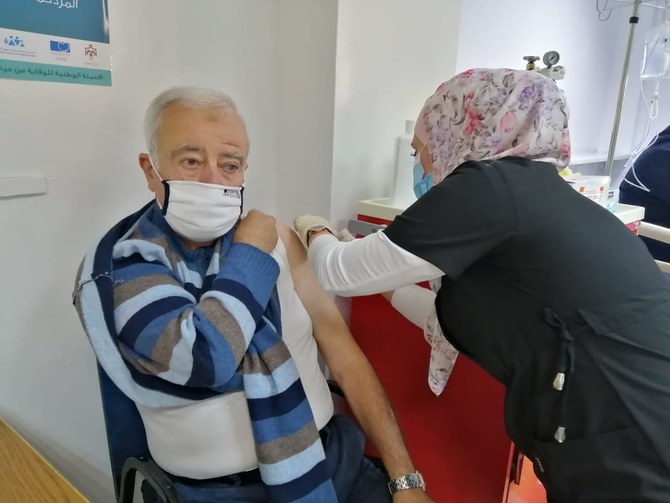DEIR AL-BALAH, Gaza Strip: Aid groups are raising new alarm over Israel’s blockade of the war-ravaged Gaza Strip, where no food or other supplies have been allowed in for more than six weeks.
Thousands of children are malnourished, and most people are only eating one meal every other day, the United Nations says.
Israel ended a ceasefire last month and renewed its bombardment, killing hundreds of people and seizing large parts of the territory to pressure Hamas to accept changes to the deal that would speed the release of hostages. Israeli strikes overnight into Thursday killed at least 23 people, including a family of 10.
A strike in the southern city of Khan Younis killed five children, four women and a man from the same family, all of whom suffered severe burns, according to Nasser Hospital, which received the bodies. Strikes in northern Gaza killed 13 people, including nine children, according to the Indonesian Hospital.
The Israeli military says it tries to avoid harming civilians and blames their deaths on Hamas because it operates in residential areas. There was no immediate comment on the latest strikes.
Nearly all rely on charity kitchens
The UN humanitarian office, known as OCHA, said that almost all of Gaza’s more than 2 million people now rely on charity kitchens supported by aid groups, which can prepare just 1 million meals a day.
Other food distribution programs have shut down for lack of supplies, and the UN and other aid groups have been sending their remaining stocks to the charity kitchens.
The only other way to get food in Gaza is from markets. But prices are spiraling and shortages are widespread, meaning humanitarian aid is the primary food source for 80 percent of the population, the World Food Program said in its monthly report for April.
“The Gaza Strip is now likely facing the worst humanitarian crisis in the 18 months since the escalation of hostilities in October 2023,” OCHA said.
Most people in Gaza are now down to one meal a day, said Shaina Low, a spokesperson for the Norwegian Refugee Council. “It’s far lower than what is needed,” she said.
Water is also growing scarce, with Palestinians standing in long lines to fill jerry cans from trucks. Omar Shatat, an official with a local water utility, said people are down to six or seven liters per day, well below the amount the UN estimates is needed to meet basic needs.
More hungry children, and they are harder to reach
In March, more than 3,600 children were newly admitted for treatment for acute malnutrition, up from around 2,000 the month before, according to OCHA, which said “the rapid deterioration of the nutrition situation is already visible.”
At the same time, aid groups’ ability to treat malnourished children is hampered by Israel’s airstrikes and ground operations, which resumed on March 18.
In March, the number of children under 5 that aid workers could supply with nutrient supplements fell 70 percent from February, down to 22,300 children – a fraction of the 29,000 children they aim to reach. Only 60 percent of the 173 treatment sites are operating, and demand for the dwindling supplies is rising, OCHA said.
“Humanitarians have been forced to watch people suffer and die while carrying the impossible burden of providing relief with depleted supplies, all while facing the same life-threatening conditions themselves,” said Amande Bazerolle, the emergency coordinator in Gaza for Doctors Without Borders.
“This is not a humanitarian failure — it is a political choice, and a deliberate assault on a people’s ability to survive, carried out with impunity,” she said in a statement.
Israel says the blockade is a pressure tactic
Israeli Defense Minister Israel Katz said Wednesday that preventing humanitarian aid is one of the “central pressure tactics” used against Hamas, which Israel accuses of siphoning off aid to maintain its rule.
Israel is demanding that Hamas release more hostages at the start of any new ceasefire and ultimately agree to disarm and leave the territory. Katz said that even afterward Israel will continue to occupy large “security zones” inside Gaza.
Hamas is currently holding 59 hostages, 24 of whom are believed to be alive. It says it will only return them in exchange for the release of more Palestinian prisoners, a full Israeli withdrawal from Gaza and a lasting truce, as called for in the now-defunct ceasefire agreement reached earlier this year.
Hani Almadhoun, co-founder of Gaza Soup Kitchen, said his kitchen has food for about three more weeks.
“But food is loosely defined. We have pasta and rice but nothing much beyond that. No fresh produce. There is no chicken or beef. The only thing we have is canned meat,” he said. He said 15-20 percent of the people who come to his kitchen for food leave empty-handed.
The war began when Hamas-led militants attacked southern Israel on Oct. 7, 2023, killing some 1,200 people, mostly civilians, and abducting 251. Most of the hostages have since been released in ceasefire agreements or other deals. Israel has rescued eight and recovered dozens of bodies.
Israel’s offensive has killed over 51,000 Palestinians, mostly women and children, according to the Gaza Health Ministry, which does not say how many of the dead were civilians or combatants. Israel says it has killed around 20,000 militants, without providing evidence.
The war has destroyed vast parts of Gaza and most of its food production capabilities. The war has displaced around 90 percent of the population, with hundreds of thousands of people living in tent camps and bombed-out buildings.






























